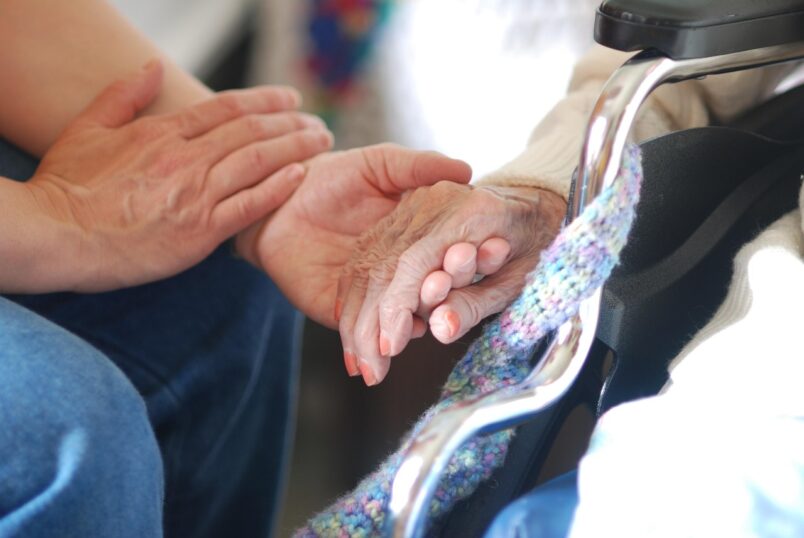Disclaimer: Devoted Grandma is reader-supported. If you purchase anything through my site, I may receive a small commission (at no cost to you). Thank you.

As grandmothers, we pride ourselves on being the backbone of the family, always ready with a warm meal, a listening ear, and an endless supply of love. However, in our dedication to our loved ones, we sometimes neglect our own health and well-being. Over time, small habits can add up, affecting our quality of life. Here are 12 common unhealthy habits that many grandmas fall into—habits we should be mindful of changing for the sake of our health and the joy of many more years with our grandkids.
1. Skipping Regular Check-Ups
We often brush off doctor visits, thinking, “I’m fine, just a little tired.” But neglecting regular check-ups can allow serious conditions like high blood pressure, diabetes, or heart disease to go unnoticed until it’s too late. Many health issues, when caught early, can be managed effectively. A simple annual check-up, blood tests, and screenings can make all the difference in maintaining a long, healthy life. If we prioritize our family’s health, we must do the same for ourselves.
2. Putting Everyone Else First
Grandmothers have a natural instinct to care for others, but when we consistently put everyone else’s needs ahead of our own, we risk burnout. Whether it’s babysitting the grandkids, helping out with chores, or making meals for the family, we often forget to leave time for self-care. Taking time for ourselves—whether through relaxation, hobbies, or social activities—is crucial for our mental and physical well-being. If we don’t take care of ourselves, we won’t have the energy to take care of others either.
3. Ignoring Sleep Needs
Late nights scrolling through family photos, finishing chores, or watching our favorite TV shows might seem harmless, but not getting enough sleep weakens our immune system, affects our mood, and increases the risk of chronic illnesses like heart disease and cognitive decline. Sleep is not just about quantity but also quality. Avoiding screen time before bed, maintaining a bedtime routine, and ensuring a comfortable sleeping environment can help us get the rest we need to stay energized and sharp.
4. Overindulging in Sweets and Comfort Foods
We love to bake cookies for the grandkids, and sometimes we indulge a little too much ourselves. Excess sugar and unhealthy snacks can lead to weight gain, diabetes, and other health problems. While it’s okay to enjoy treats now and then, moderation is key. Incorporating healthier alternatives like fruit-based desserts, nuts, and dark chocolate can help satisfy our sweet tooth while keeping our health in check. Balanced nutrition ensures we have the energy to keep up with our little ones.
5. Not Drinking Enough Water
Many of us prefer a cup of coffee or tea over plain water, but dehydration can cause fatigue, dizziness, and kidney issues. As we age, our sense of thirst diminishes, making it easier to forget to drink enough water. Aiming for at least 6-8 glasses of water a day can work wonders. Carrying a water bottle, setting reminders, and eating water-rich foods like cucumbers and watermelon can help us stay hydrated and maintain overall good health.
6. Not Exercising Regularly
We might say, “I’m too old for that,” but staying active is essential for maintaining mobility, heart health, and mental well-being. Even a daily walk, gentle stretching, or light yoga can make a significant difference. Strength training helps maintain bone density and reduces the risk of osteoporosis. Engaging in physical activities like gardening, dancing, or even playing with the grandkids can make exercise enjoyable rather than a chore.
7. Bottling Up Stress
Whether it’s worrying about our grandkids, family issues, or financial concerns, carrying stress without an outlet can harm our health. Chronic stress increases the risk of heart disease, weakens the immune system, and contributes to anxiety and depression. Practicing relaxation techniques like deep breathing, meditation, or engaging in hobbies can help relieve stress. Talking to a trusted friend, joining a support group, or even seeking professional guidance when needed can help us manage our emotions better.
8. Skipping Meals or Eating Too Little
With busy schedules and taking care of others, we sometimes forget to eat properly. Skipping meals can slow metabolism and lead to nutritional deficiencies. As we age, our bodies require more nutrient-dense foods to maintain energy levels and prevent health issues. Eating balanced meals that include protein, fiber, healthy fats, and vitamins ensures that we get the nutrition we need. Meal prepping or setting reminders can help establish regular eating habits.
9. Neglecting Mental Stimulation
Our brains need exercise just as much as our bodies. If we stop learning and engaging in new activities, we may experience cognitive decline. Activities like crossword puzzles, Sudoku, reading, or even learning a new language can help keep our minds sharp. Social interactions, meaningful conversations, and engaging in creative outlets like painting or playing a musical instrument can also contribute to mental agility.
10. Spending Too Much Time Sitting
Whether watching TV, knitting, or reading, sitting for long periods increases the risk of heart disease, weight gain, and joint stiffness. Standing up, stretching, and moving around regularly can help keep us healthy. Setting a reminder to stand up every 30 minutes, doing light housework, or incorporating movement into daily routines can prevent sedentary behavior from affecting our health negatively.
11. Holding onto Negative Emotions
Harboring resentment, guilt, or sadness can take a toll on our mental and physical health. Suppressed emotions can lead to stress-related illnesses, anxiety, and even high blood pressure. Practicing forgiveness, letting go of past grievances, and focusing on the positives in life can lighten our emotional load. Expressing gratitude, engaging in joyful activities, and seeking therapy or spiritual guidance when needed can help us cultivate a more peaceful mindset.
12. Resisting Change
Whether it’s new technology, dietary adjustments, or lifestyle changes, being too set in our ways can hinder our growth. Change can be challenging, but it also brings new opportunities for learning and connection. Embracing technology, for example, can help us stay connected with family and access valuable health and wellness resources. Being open to adapting our habits allows us to live a more fulfilling and enriched life.
Final Thoughts:
We grandmas are treasures to our families, and taking care of ourselves is one of the best gifts we can give them. By recognizing and changing these unhealthy habits, we ensure we stay strong, happy, and present for many more years of love, laughter, and precious moments with our grandkids. Prioritizing our health means more energy to enjoy our favorite activities, create lasting memories, and continue being the warm, guiding presence our families cherish.

